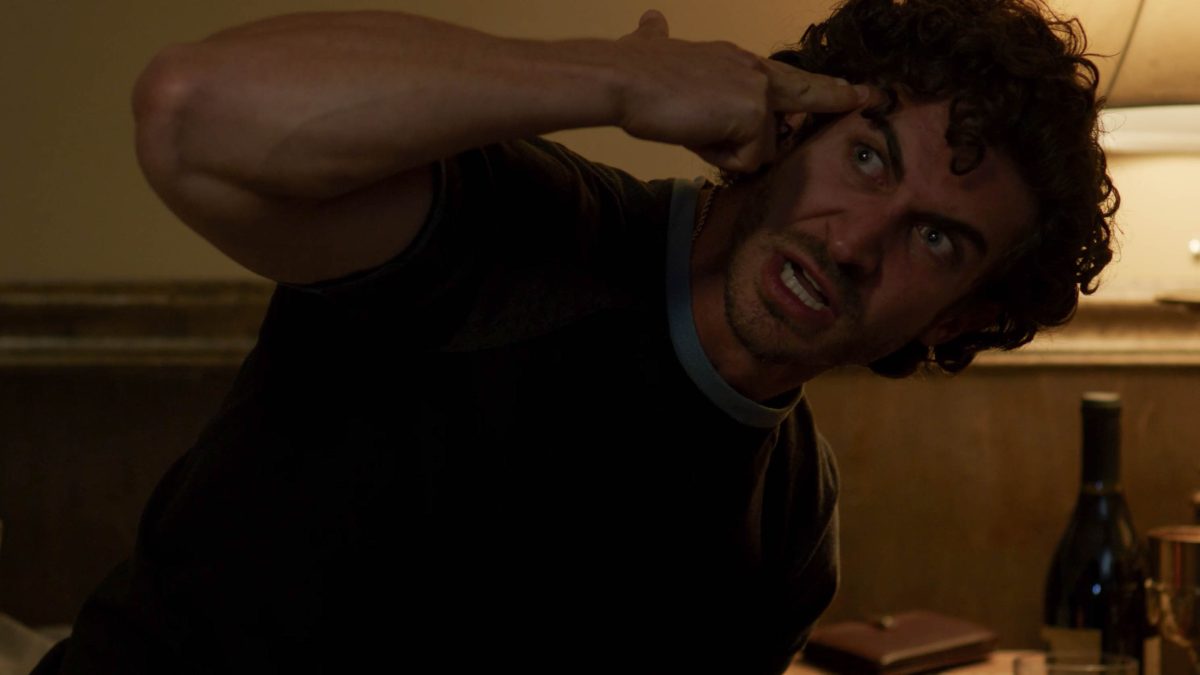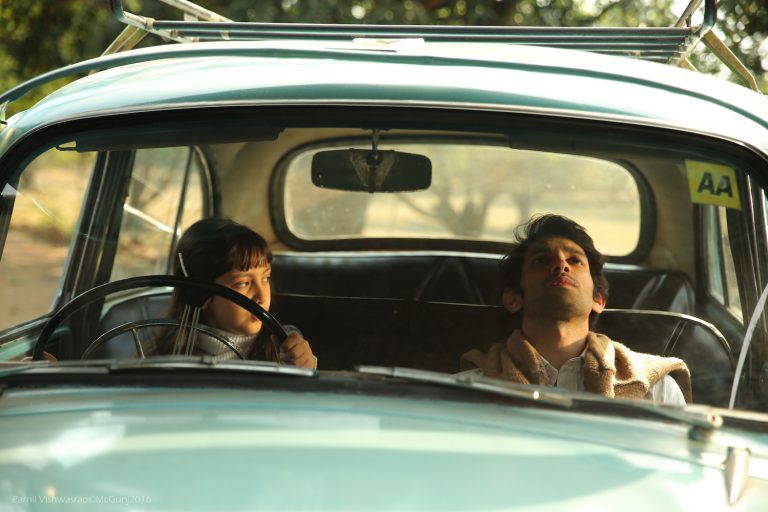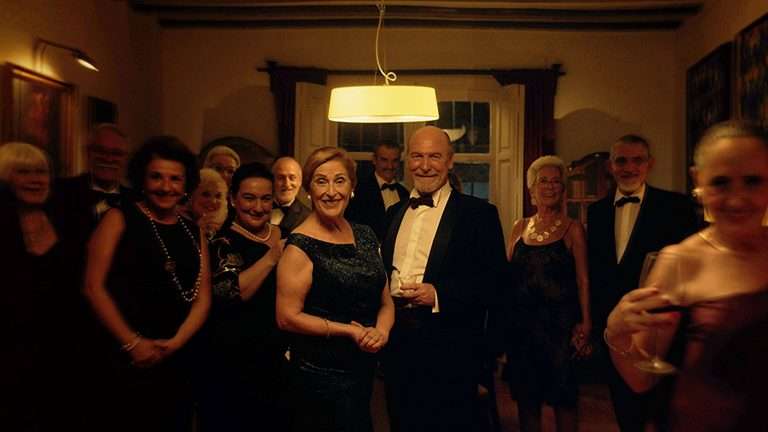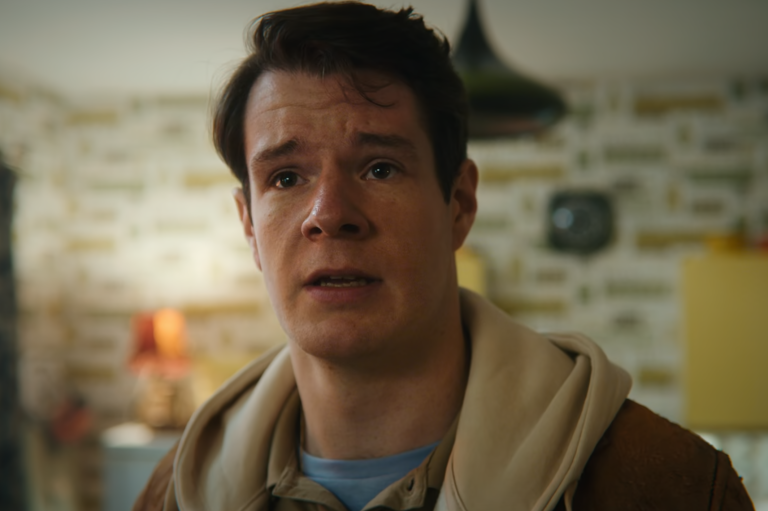Some movies find structure in their chaos, while some readily go against set parameters to define one of their own. Thomas Mills’ “Luderdale” is a film that wishes to be the latter by challenging the very notion of how to calibrate its narrative. It’s the kind of crime thriller that is so pleased by the way it introduces its twisted connective tissues that it forgets to actually set it up with well-conceived progression, character arc, or performances that can make it believable. The result is a bland crime thriller that messes up its own inconsistent design by never rising above its underdeveloped material.
The movie is broken into two separate timelines (your first hint is here) – both of which are centred around Hutch (John Gargan) and, for reasons only known to the filmmaker himself, they are set in the 80s (no amount of poorly done set design makes it feel believable for even a second). In the first timeline, Hutch is a charming young man (distinctions are made on the basis of his being a brunette in this lazy introduction) and a hustler, a showman who is good at selling and making money for himself and others. However, he gets caught up with a loopy, brooding gangster named Mr. J’s (Joe Chambrello) ethically insincere endeavors that are well beyond the laws of the mafia.
Then, without any sense of urgency, logic, or warning, the film moves to Fort Lauderdale, where Hutch (now with blonde hair) just randomly shows up on the doorsteps of a shuttered beachfront hotel that is supposedly run by two Italian cousins (they never feel like one) – the coked-up but welcoming Nicky (Austin Valli) and the apprehensive, cigarette smoking muscle-man Tommy (Christian Shupe).
After some intial hiccups and loyalty floundering, the two of them decide to bring Hutch under their wing so that he can help set up their rundown place into a makeshift one because of the view. Oh, and in order to pass the bitchel test, director Mills throws in the young and beautiful Candy (Ayden Skye) in the mix. However, her absence wouldn’t make much of a difference to the film itself.

Now, to get things somewhat moving, there are a bunch of drug-dealers, gangland enemies, and unforeseeable events also dropped into the narrative, but a large chunk of “Luderdale” is the three men trusting and distrusting each other. There is no rhyme or reason for some of the elements that consistently pop up – a young bikini-clad girl, for instance, shows up to develop something only to be abandoned by the nonsensicality of how things pan out.
I mean, you can take an interest in whatever happens in here if you are someone who is just intrigued by men talking to each other with stilted dialogue delivery and over-the-top dictation. If you do, then you might find something of value here, but for me, there’s not a single redeeming factor.
Even though the filmmaker has found a location right by the beach, he opts for green screens and badly done CGI during the hangout cum tanning sequences that take place on the roof. It also doesn’t help that all the performances here are so bad and over-the-top that you would want the film to at least have some form of continuity, a sense of time or logic, but sadly, the filmmaker does not pay any heed to all these elements, and when the narrative twist is set into motion, it lands flat on its face.
“Luderdale” thus becomes a failed attempt at gangster intrigue or a thematic representation of fate and loyalty.



![Inexorable [2021]: ‘TIFF’ Review – Stoker Meets Misery In This French Thriller](https://79468c92.delivery.rocketcdn.me/wp-content/uploads/2021/09/Inexorable-1-highonfilms-768x384.jpg)



